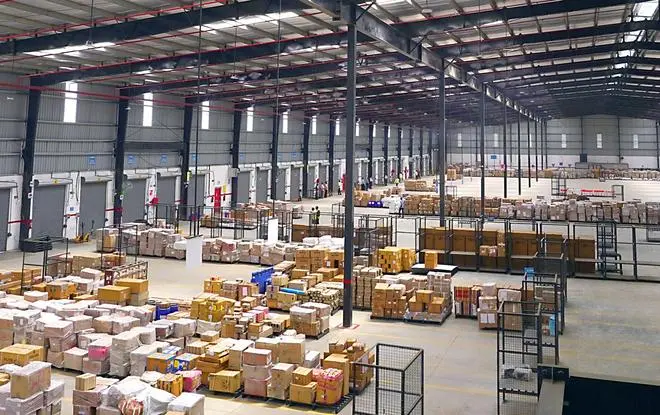As ecommerce grows by leaps and bounds, there is a surge in demand for logistics services. In line with this growth, cargo and logistics companies are investing in new facilities and processes to widen and streamline their operations.
The investments come amid an improved highway network in the country and a projected 7 per cent GDP growth for FY 2025.
Mumbai-headquartered logistics company Allcargo Gati is expanding its branch network and ugrading infrastructure and technology. “Seven planned hubs have been operationalised in Farukhnagar (Gurugram), Nagpur, Guwahati, Bhiwandi (Mumbai), Bangalore, Indore and Hyderabad. Furthermore, we will expand facilities in Ahmedabad, Kolkata, and Pune,” says Ketan Kulkarni, deputy managing director of Gati Express and Supply Chain Pvt Ltd.
The company is also investing in fleet expansion, and additional sorting centres and warehouses. “These investments will scale up our operations and improve delivery speed and service efficiency,” Kulkarni says. Other initiatives include an overhaul of its enterprise research planning platform for precision in delivery, mid-mile efficiency and cross-docking processes (which involve transfer of inbound and outbound cargo with minimal wait at warehouses).
Most goods, including ecommerce shipments, parcels and small consignments are transported by road in India.
Competitive arena
Goods transportation is a highly competitive and cost-intensive operation, necessitating investment in workforce, collection centres and sales contracts. While there are 10-12 national operators there are multiple other companies that engage in cargo movement by road between two or more city pairs.
Home-grown logistics company Blue Dart says it covers over 56,000 locations and 19,000 pin codes, enabling it to reach even the remotest parts of the country. It plans to expand to more centres.
“Blue Dart recognises the competitive nature of the freight business in India, particularly with a significant portion of ecommerce goods transported by road. To strengthen our market presence, we are investing in state-of-the-art infrastructure, including new facilities in key locations such as Guwahati (Assam) and Brijwasan (Delhi),” says Pablo Ciano, CEO of the ecommerce division of DHL, the German company that holds 75 per cent stake in Blue Dart.
The ecommerce division operates domestic parcel transport business in 20 countries, including India.
“Our investment in advanced technology and strategic partnerships, including with India Post’s digital parcel lockers, ensures we meet the evolving needs of our customers and the express industry as a whole,” Ciano says.
Electronics freight
Alongside the growth in the domestic freight business, India holds added attraction for DHL with its expanding role in global supply chains. “As different manufacturers focus on enhancing the resilience of their supply chains, following a China+1 or multi-sourcing strategy, India is poised to become even more attractive as a trade partner, as well as a production and sourcing hub,” Ciano says.
This shift is already evident in electronics manufacturing. Technology giant Apple assembled $14 billion worth of iPhones in the country last year, accounting for 14 per cent of its global production. India’s electronics export to the US is also on the rise, as reflected in the higher trade surplus in this category.

Allcargo Gati’s Bhiwandi warehouse
For domestic logistics companies, meanwhile, growth is driven by the ecommerce, FMCG and retail segments.
“We are optimistic about sustained growth in the upcoming quarters, as demand across tier II and III centres and from MSMEs (micro, small and medium enterprises) continues to rise,” says Kulkarni.
Movin Express, which describes itself as a business-to-business small package logistics company, is a joint venture between American multinational logistics company UPS and Indian travel conglomerate InterGlobe Enterprises.
“We have witnessed substantial growth in 2024 and are now the preferred logistics partners for over 2,000 customers across India,” says Grégory Goba-Blé, Director of Movin Express.
Challenges
Cost pressure is a major worry for the logistics sector, especially with the rising prices of both used and new trucks. A Shriram Finance report says used commercial vehicle prices rose by 5-47 per cent in July. The industry is also impacted by inflationary pressures, including wage hikes, and this has led to rate hikes since January 1.
Movin Express says that to ease cost pressure it is optimising operations, leveraging technology, expanding its electric vehicle fleet to reduce fuel costs, and streamlining its supply chain to minimise overheads. The company is also using data analytics to optimise route planning, reduce transit times, and elevate service reliability, Goba-Blé says.







Comments
Comments have to be in English, and in full sentences. They cannot be abusive or personal. Please abide by our community guidelines for posting your comments.
We have migrated to a new commenting platform. If you are already a registered user of TheHindu Businessline and logged in, you may continue to engage with our articles. If you do not have an account please register and login to post comments. Users can access their older comments by logging into their accounts on Vuukle.